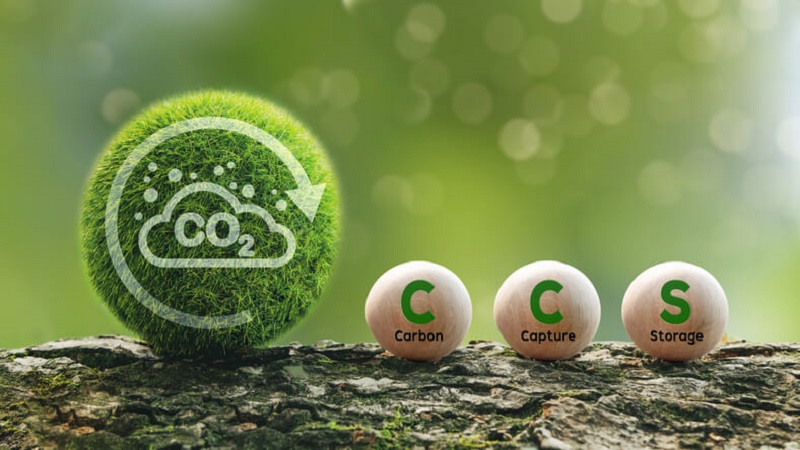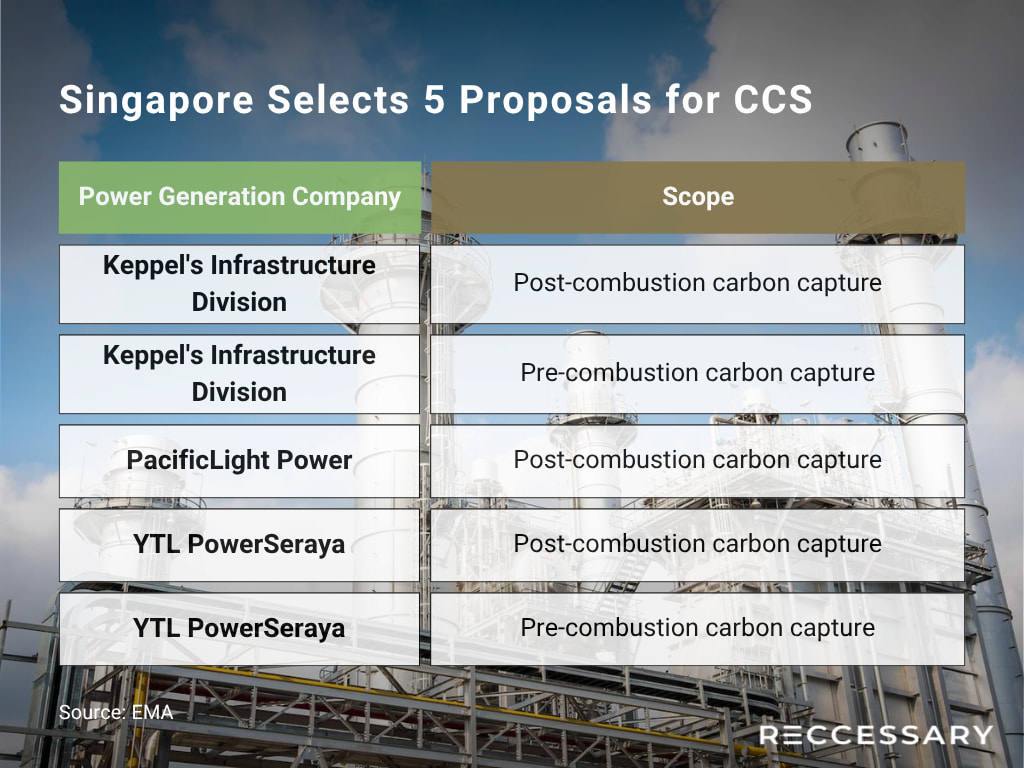
Carbon capture and storage (CCS) is recognized by the Singapore government as a key industrial decarbonization technology. (Photo: EMA)
The Singapore government has identified carbon capture and storage (CCS) as one of the country’s key pathways to achieving net-zero emissions.
On July 14, authorities announced that three companies, Keppel, PacificLight Power (PLP), and YTL PowerSeraya, have been awarded funding to conduct CCS feasibility studies. The results of these studies are expected by the end of January 2026 and will inform future decarbonization strategies in the power sector.
5 CCS proposals selected, up to SGD 350,000 in funding each
According to the Energy Market Authority (EMA), the studies will focus specifically on CCS applications in the energy sector, covering both pre-combustion and post-combustion capture technologies.
Pre-combustion capture involves converting natural gas into hydrogen and carbon dioxide (CO₂), with the CO₂ captured before the fuel is burned. Post-combustion capture extracts CO₂ from flue gases after natural gas is combusted.
A total of 5 proposals from the 3 selected companies were awarded, each receiving up to SGD 350,000 (about USD 273,000) in research grants. The findings will help EMA and power producers better understand CCS technologies, infrastructure needs, and site requirements—ultimately supporting future front-end engineering design (FEED) efforts.

Natural gas currently accounts for over 90% of Singapore’s electricity generation. While the government aims to reduce this reliance, projections suggest it will still comprise more than 50% of the mix by 2035. The power sector contributes roughly 40% of the country’s total greenhouse gas emissions, making its decarbonization a critical component of Singapore’s net-zero ambitions.
Singapore eyes cross-border CCS collaboration with Indonesia
Official reports rank CCS among the top three most impactful emission-reduction strategies for Singapore. By 2030, CCS could prevent up to 2.5 million tonnes of CO₂-equivalent emissions—around 20% of the country’s projected reductions—comparable to replacing one million gasoline vehicles with electric ones.
In addition to domestic initiatives, Singapore is working with international partners. The S-Hub consortium, led by oil majors Shell and ExxonMobil, has been studying cross-border CCS since 2024. One key pathway involves transporting captured CO₂ from Singapore to storage sites overseas, such as in Indonesia.
The EMA’s Carbon Capture and Storage Programme Office (CCSPO) noted that CCS deployments must be customized to specific project conditions such as location and demand, leading to higher costs. With regulatory frameworks still under development, collaboration and knowledge-sharing will be essential to accelerate CCS adoption in Singapore.
Source: The Straits Times, EMA(1), (2)
.jpg)



